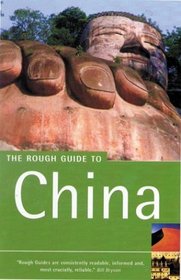Search -
Rough Guide to China 3 (Rough Guide Travel Guides)
Rough Guide to China 3 - Rough Guide Travel Guides
Author:
INTRODUCTION China has grown up alone and aloof, cut off from the rest of Eurasia by the Himalayas to the south and the Siberian steppe to the north. For the last three millennia, while empires, languages and peoples in the rest of the world rose, blossomed and disappeared without trace, China has been busy largely recycling itself. The ferocio... more »
Author:
INTRODUCTION China has grown up alone and aloof, cut off from the rest of Eurasia by the Himalayas to the south and the Siberian steppe to the north. For the last three millennia, while empires, languages and peoples in the rest of the world rose, blossomed and disappeared without trace, China has been busy largely recycling itself. The ferocio... more »
ISBN-13: 9781843530190
ISBN-10: 1843530198
Publication Date: 5/12/2003
Pages: 1,290
Rating: ?
ISBN-10: 1843530198
Publication Date: 5/12/2003
Pages: 1,290
Rating: ?
0 stars, based on 0 rating
Genres:
- Travel >> Asia >> China >> General
- Travel >> Guidebook Series >> Rough Guide




